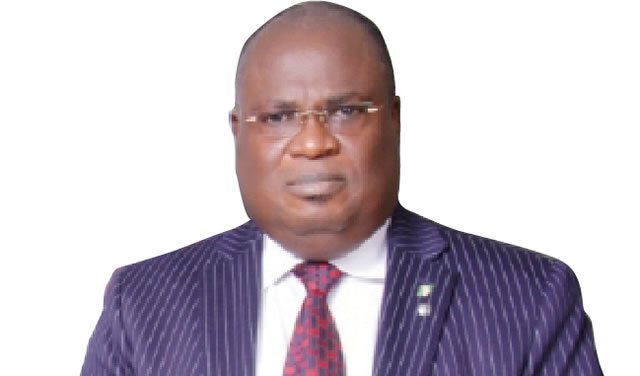
A former member of the National Health Insurance Scheme Governing Council and Chief Executive Officer of the Ultimate Health Management Services, Lekan Ewenla in this interview with ADELANI ADEPEGBA, explains how poverty can be tackled with universal health coverage
On a general note, what is the health insurance status in Nigeria? How wide is the coverage now?
When the health insurance programme commenced in 2005 under Act 35 of 1999 constitution, it focused strictly on the formal sector divided into the public and the organised private sector.
Shortly after it took off, efforts were put in place by the concerned critical stakeholders in the health insurance ecosystem to deepen and expand the coverage of the health insurance programme to the informal sector.
It is very important to mention at this point the fact that health is on the concurrent list in our constitution.
The efforts to expand the coverage translated to the introduction of the community-based health insurance programme, tertiary institution social health insurance programme, and a few other programmes. It is also important to mention that the law was not quite strong in enforcement and compliance, most especially for the organised private sector, which resulted in the programme’s poor enrolment.
However, the umbrella association of private employers – NECA (Nigeria Employers’ Consultative Association), was represented on the Governing Council of the regulatory agency- NHIS (National Health Insurance Scheme). I would say the health insurance programme is growing, but it can be better.
The good news is that the law establishing the programme has been holistically reviewed. All identified challenges affecting the growth and deepening of the programme have been meticulously addressed. I guess you must have heard about NHIS under one roof, NHIS partnership with NIMC (National Identity Card Management Agency) for the automation of the NHIS ICT Platform.
The Basic Health Care Provision Fund is specifically designed to provide defined health care services for the vulnerable in the country, with the states of the federation as the drivers of the programme utilising the state-controlled Primary Healthcare Centre.
The Federal Government is now looking at health care from demand and supply value chains. The National Primary Health Care Agency drives the supply side while the NHIS drives the demand side.
The only major challenge that we are probably still facing will be over very soon, which is developing a robust database that would reveal the enrollment figures in the country at the touch of a button. The activation of the NHIS ICT will address this issue and create a platform for the regulator to seamlessly mirror the payment platform of the HMOs (Health Management Organisation), authenticate services provided by the accredited health care facilities, and deal with all other operational issues.
Which countries in Africa have established result-oriented health insurance schemes?
I want to address the question by saying that quite a number of the African countries are doing significantly well in improving their health system by introducing health insurance. I can mention Ghana, Kenya, and a host of others.
But suppose there is anything important for us all to note, in that case, it is the fact that health insurance would only survive in individual countries, considering the individual country’s peculiarities. Health insurance cannot be driven using a one size fits all approach.
We can’t compare Ghana with Nigeria on several fronts, like the size of each country, cultural differences, and many other differences. By and large, I want to say that the countries are coming up. We need to note that whatever is happening in the area of health insurance is a drop-down from the United Nations. All member countries of the UN are expected to comply with the need for all countries to enhance the well-being of their people.
What are those things individuals would gain from the health insurance scheme?
Health insurance benefits for individuals, organisations, and countries are humongous. They cannot be briefly analysed, but we can encapsulate the benefits with the sayings that ‘a healthy family is a wealthy family’ and ‘a healthy nation is a wealthy nation.’ These adages and the fact that the well-being of all people across the world is a global agenda underscore the importance of health insurance programmes.
The reason why you see a lot of people embarking on self-medication and/or seeking spiritual intervention, which mostly results in untimely death in the country, is basically because of the high rate of poverty in the country. Also, paying out of pocket for health care is not within the financial capacity of the majority of our people. Once we have a mandatory health insurance programme that guarantees unhindered access to provision defined qualitative health care services, the rest is history.
If you look at the defined objectives of the health insurance programme, you would appreciate the enormity of the benefits of having it and making it mandatory in the country. It will certainly change the narration of our healthcare indices on a local and global scale.
The national health bill has yet to be signed; what is your association doing to ensure that the bill is signed?
We have been working closely with the concerned critical stakeholders and the government across all levels. As of the last count, the Presidency sent the law back to the National Assembly through the Federal Ministry of Justice to address a few identified challenges in the bill. I guess it has been sent back to the Federal Ministry of Justice for onward transmission to the Presidency for Mr. President to assent. I would like to say that the Presidency is patiently waiting to assent to that bill because of the commitment of this administration to enhance the well-being of Nigerians and completely change the storyline of our health indices.
What benefits will accrue to the nation when the health bill becomes law?
It will certainly enhance the well-being of Nigerians and take a lot of people out of poverty.
It will also reduce the rate of untimely death in the country and reduce the agony many families face when anyone requires healthcare.
You see many people resorting to self-medication and begging for money to procure prescribed medications on the streets of Nigeria is due to the high rate of poverty in the country. The passage of the new bill, I believe, will reduce the brain drain in the health sector. It will also curb health tourism because health insurance will enhance the clinical practice of both private and public health care facilities with an exponential increment in the volume of enrolment.
The government is looking at how our structures can function optimally.
Everybody is looking at enhancing the clinical infrastructure of the PHCs and ensuring that there is no gap in the sector, so it is a major project that the government is looking at.
What are the challenges currently facing health insurance in Nigeria?
We have seen the challenges over the years. Still, I don’t want to delve too deeply into those challenges because the present leadership of the regulatory agency has been meticulously resolving the challenges.
A major challenge was the case of thinly spread across several facilities, which completely eroded the actuarial recommendation of 2,500 enrollees as a benchmark for the primary health care facilities as a gatekeeper on the public sector social health insurance programme. This challenge directly speaks to the quality of services provided by NHIS accredited primary facilities. We have had cases of enrollees treated poorly due to the low volume of enrollees in some facilities.
The regulator has recently embarked on systematic redistribution of enrollees, which is still ongoing.
The other major challenge is the manual process of driving and regulating the programme by the critical stakeholders like Health Care Facilities, Health Maintenance Organisations, and the NHIS, the regulator. This was a major and serious challenge. The good news is that as we speak today, NHIS is on the verge of piloting its newly built ICT platform to measure the functionality and the compatibility of the platform with that of the critical stakeholders in the industry.
Why are HMOs always having problems with hospitals over claims payments?
Let me clarify that because it is an issue that has been ongoing for a long time.
First of all, the existing bill does not recognise private health insurance. So what that means is that the private health insurance scheme that has created bad publicity for the HMOs in the industry can be said to be illegal as it is not recognised by law and not regulated by the NHIS. So what we see playing out between the HMOs and the Health Care Facilities is a case of two parties engaging in a business relationship without regulation by the regulator.
Generally, poor knowledge of fundamental principles of health insurance was seen as a major challenge affecting the working relationship, coupled with the reluctance of the physicians to accept the fact that they need to focus on the carrying capacity of their facilities rather than focusing on the unit cost of providing services for an enrollee.
Health Insurance is risk pooling, risk management with a defined volume, and defined services. The good news is that the new bill has adequately addressed these challenges as the bill stipulates that all residents in the country must be rolled on the social health insurance programme and that whoever desires to top up benefits packages is at liberty to approach any of the NHIS accredited HMOs for supplementary health care bouquet.
The bill also empowers the NHIS to harmonise the benefit packages and the chargeable premium of the HMOs and do the same for the chargeable tariffs of the categorised Health Care Facilities. Another very valid point of note is that the health insurance programme cannot survive on fragmented pools. What we have at the moment is fragmented pools across several HMOs.
The final solution to any of the enumerated challenges in the health insurance ecosystem will be finally laid to rest with the passage of the new bill, which we are all patiently waiting for. ,,
Copyright PUNCH.
All rights reserved. This material, and other digital content on this website, may not be reproduced, published, broadcast, rewritten or redistributed in whole or in part without prior express written permission from PUNCH.
Contact: [email protected]





